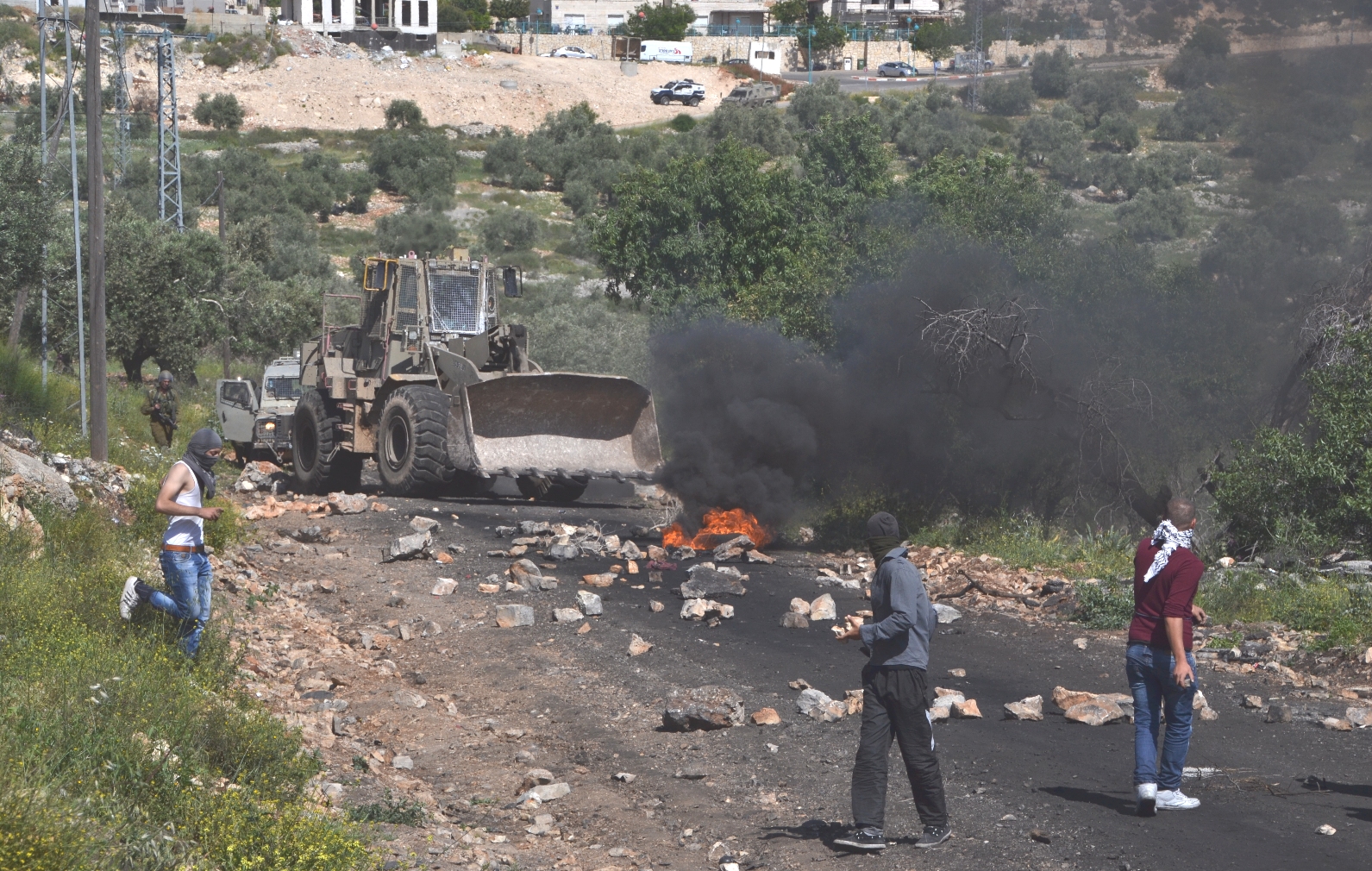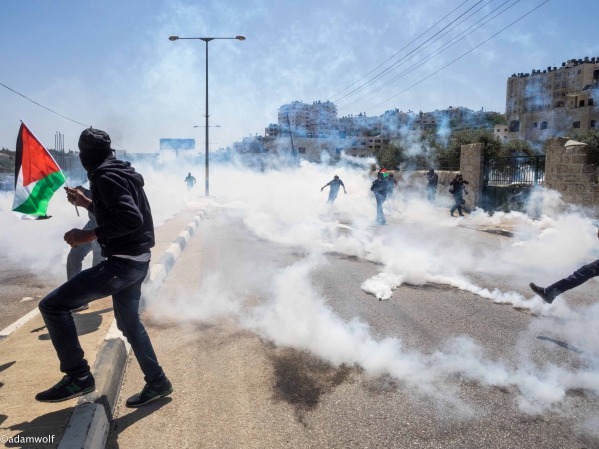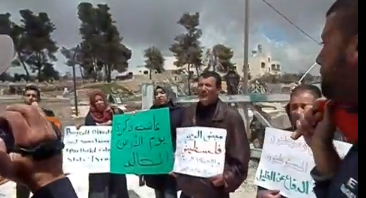Tag: Demonstration
-
Two Palestinians arrested during weekly demonstration in Kafr Qaddum
12th April 2014 | International Solidarity Movement, Nablus Team | Kafr Qaddum, Occupied Palestine Yesterday, Friday the 11th of April, during the weekly demonstration in Kafr Qaddum, the Israeli army arrested two Palestinian youths. As with every Friday, the demonstration [which has taken place since 2011] began after morning prayers with the people of Kafr Qaddum marching through the village to protest…
-
Eight activists injured by live ammunition in prisoner release protest outside Ofer prison
4th April 2014 | International Solidarity Movement | Ramallah, Occupied Palestine This afternoon approximately 500 Palestinian, international and Israeli demonstrators gathered close to Ofer Prison in Ramallah to protest against the refusal of the Israeli state to release the fourth group of Palestinian prisoners. As part of the current round of talks between Fatah (the…
-
Demonstration against settlement expansion in Hebron
30th March 2014 | International Solidarity Movement, Khalil Team | Hebron, Occupied Palestine At noon today approximately 50 protesters held a demonstration outside the Rajabi Building, Hebron, in protest of the recent court decision to let settlers take over the building. Settlers taking over the house would mean a huge expansion of the illegal settlement…



